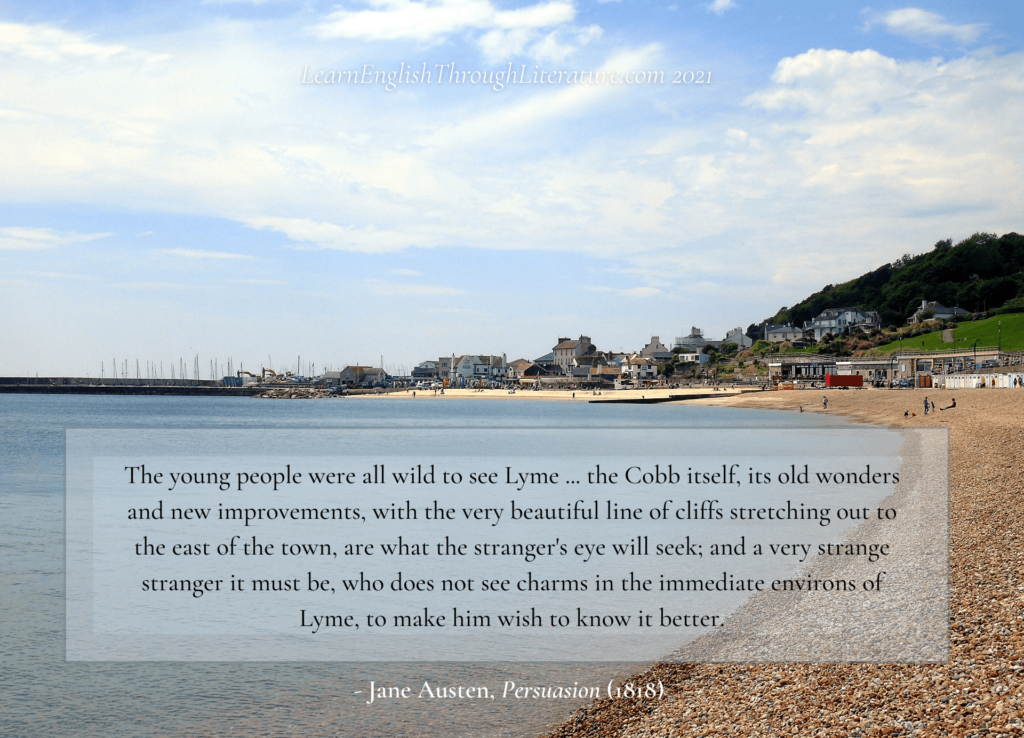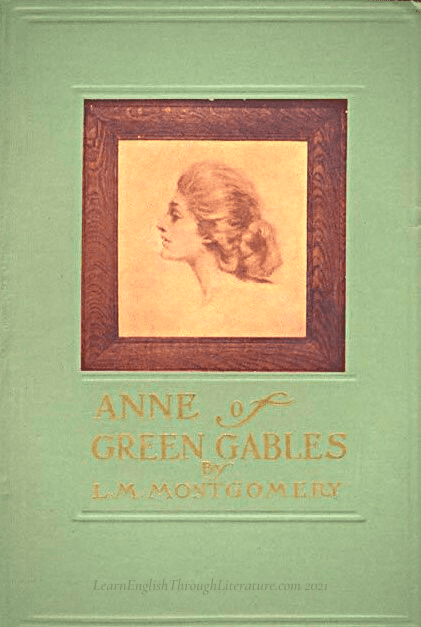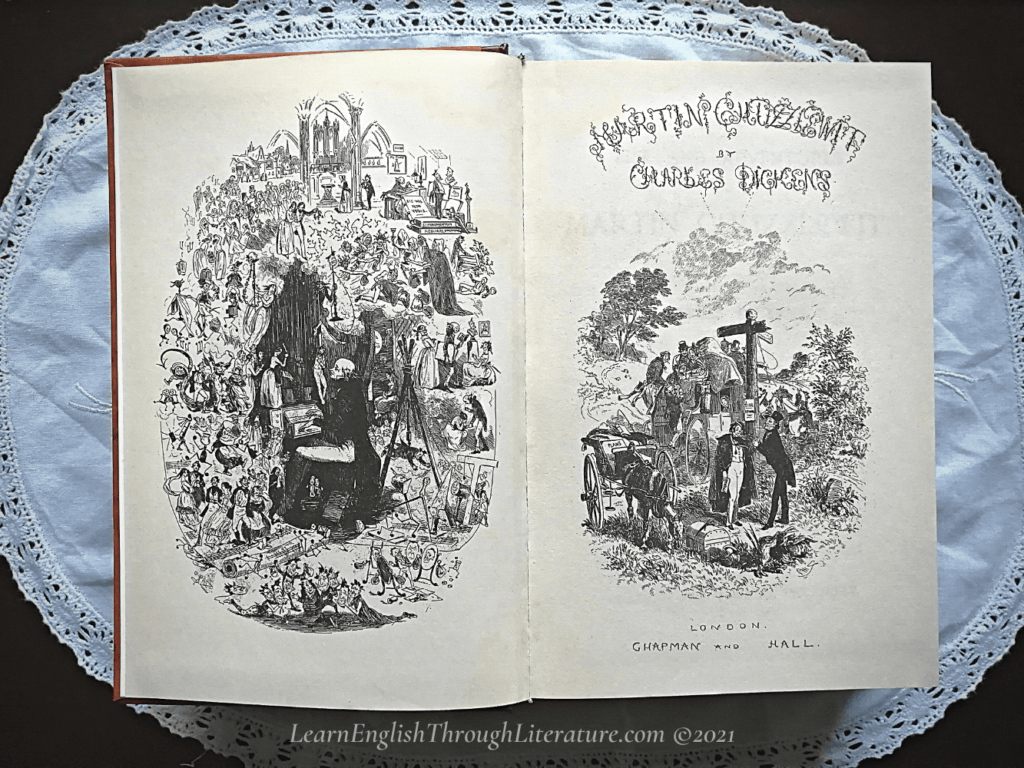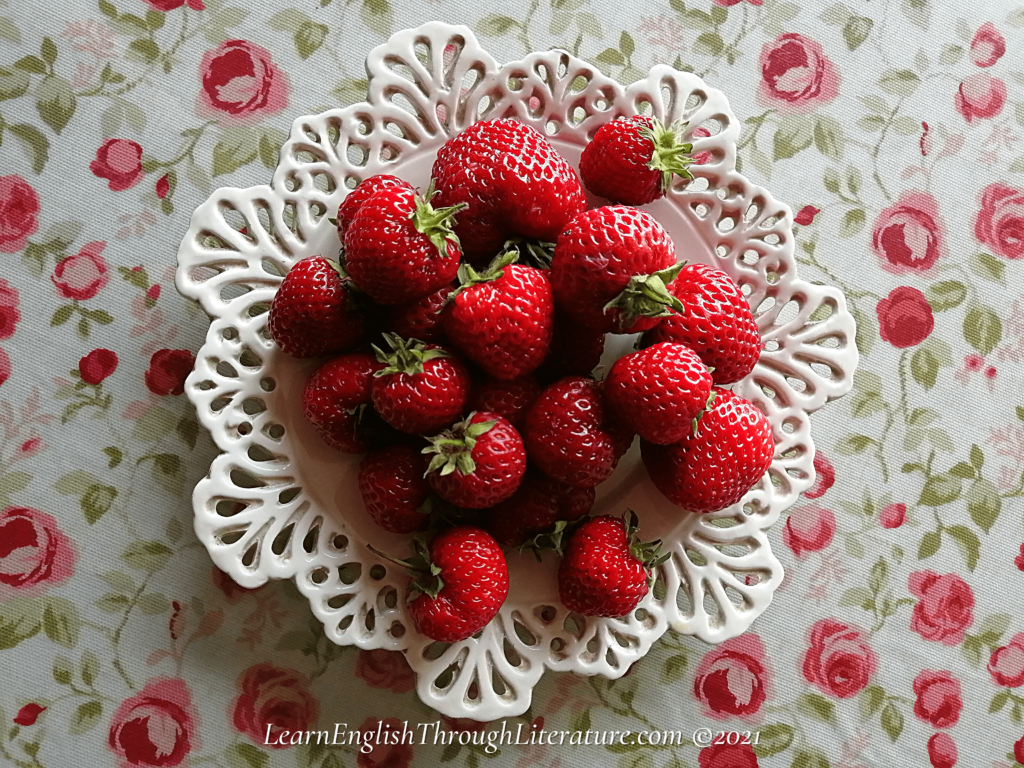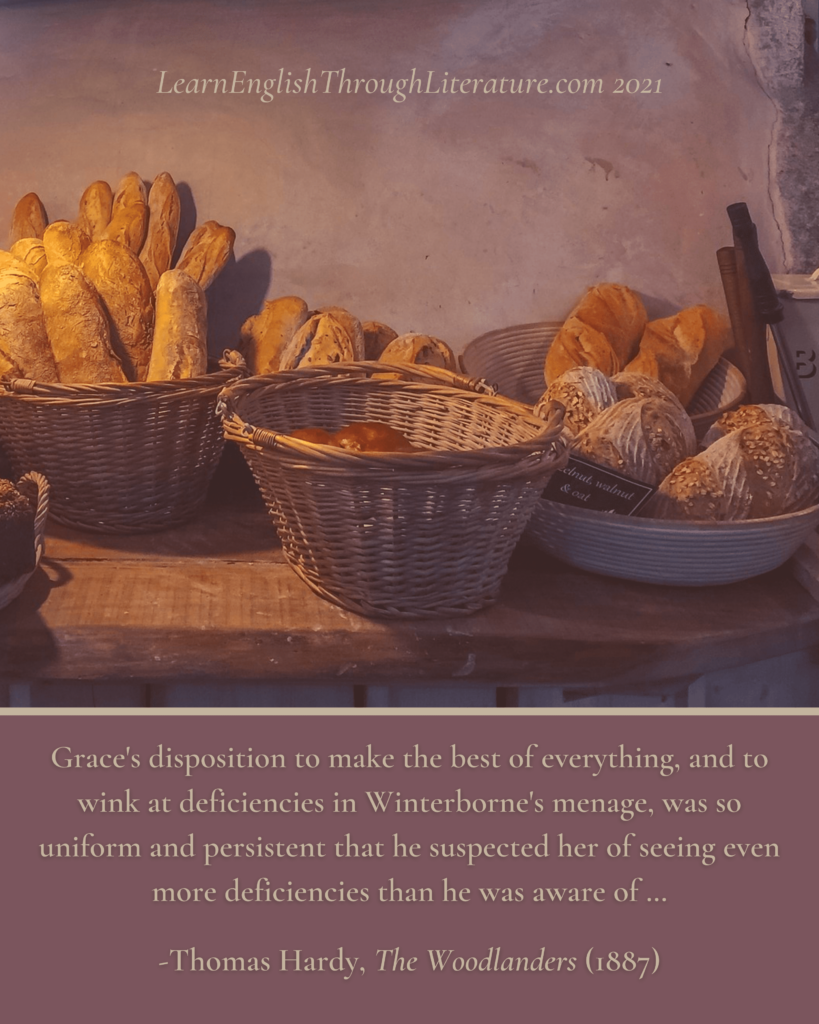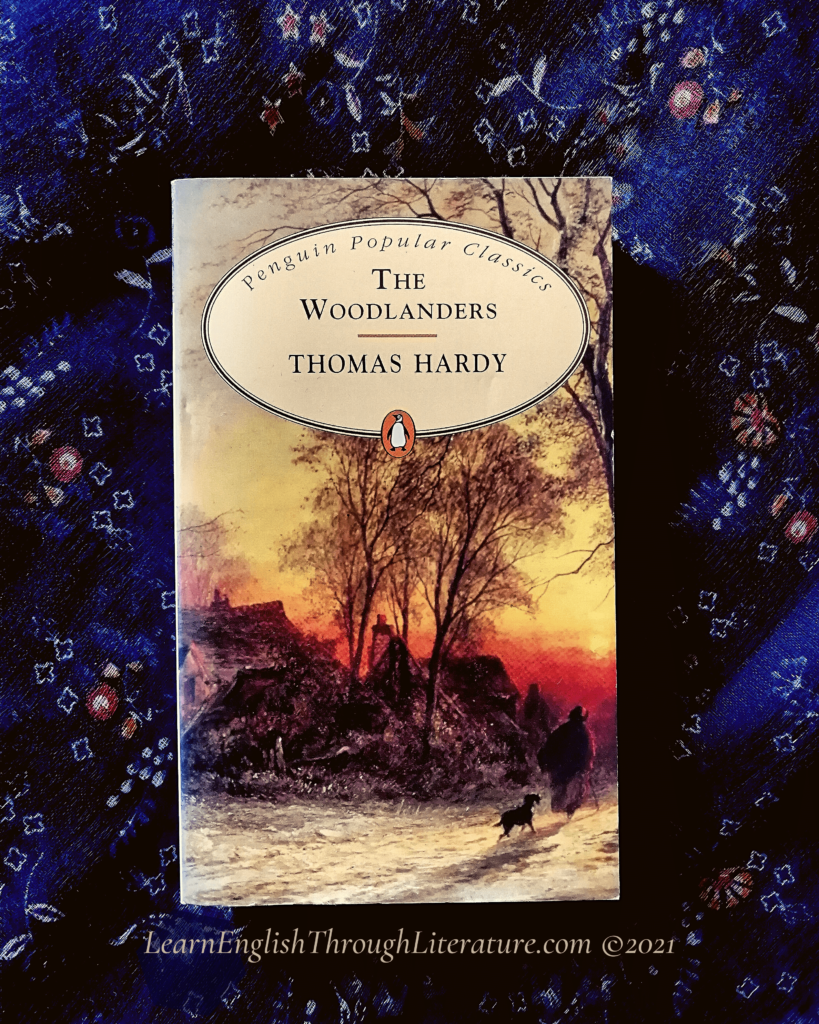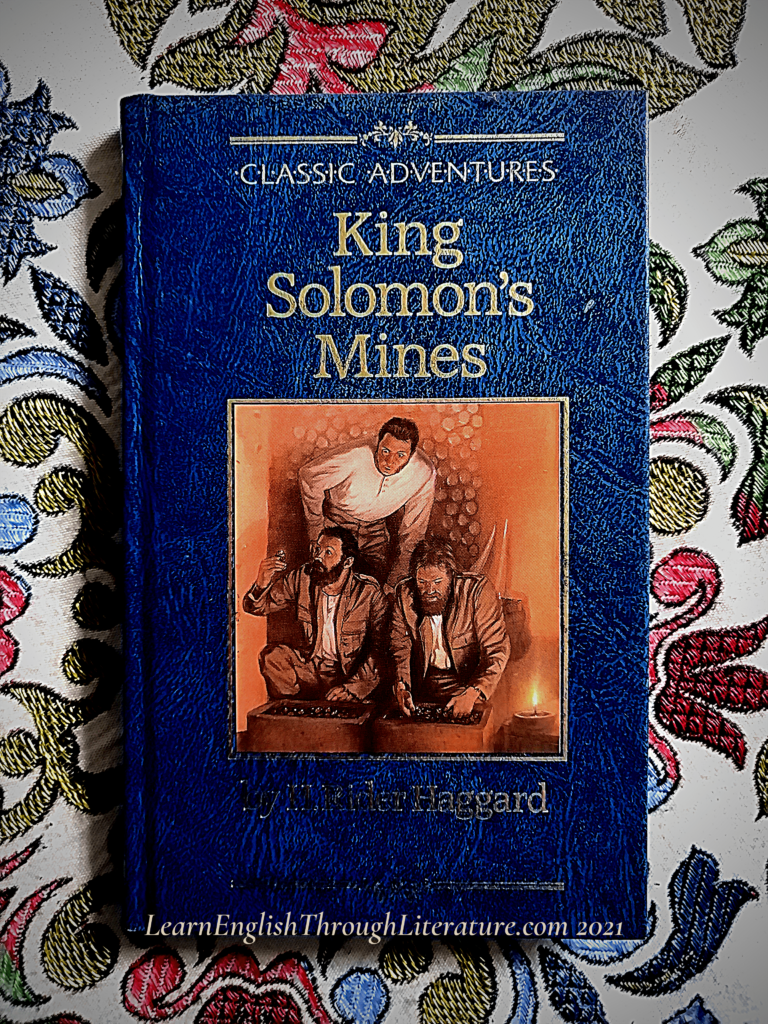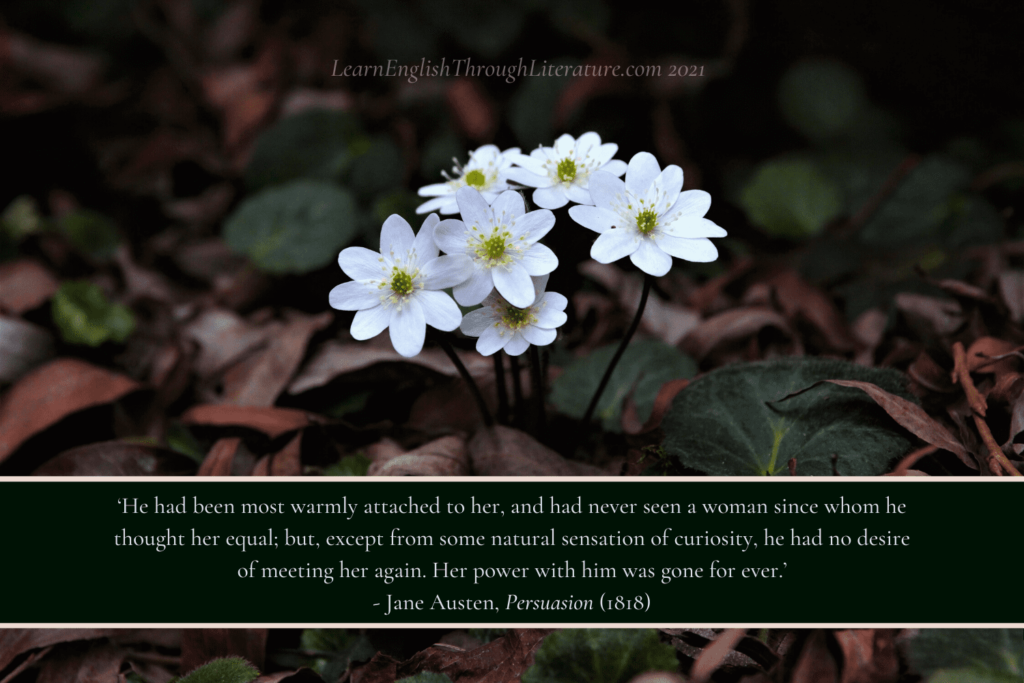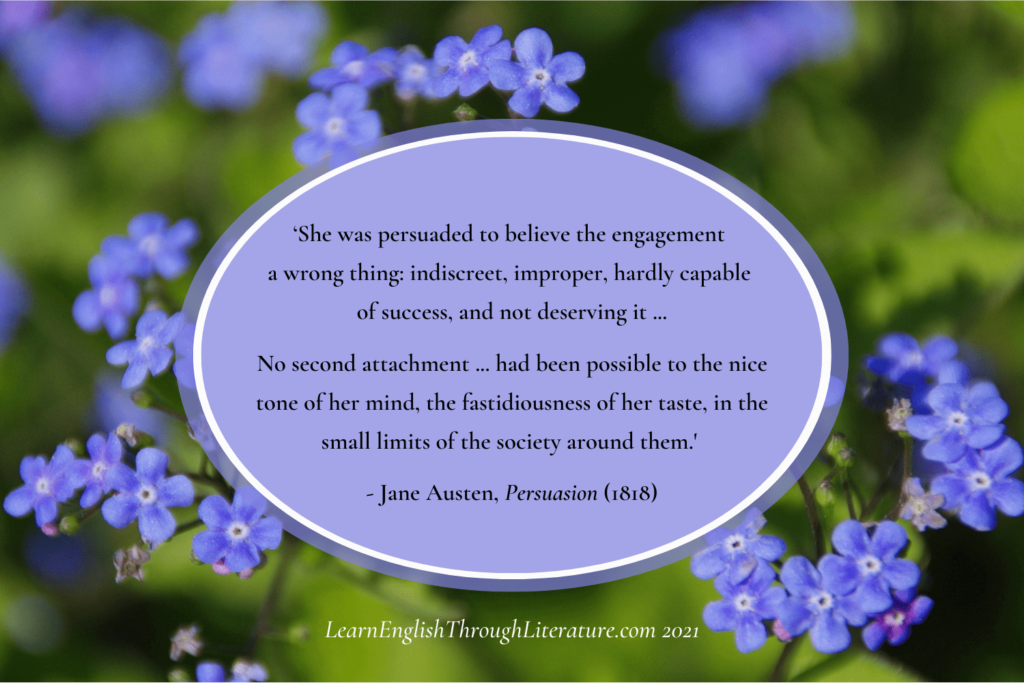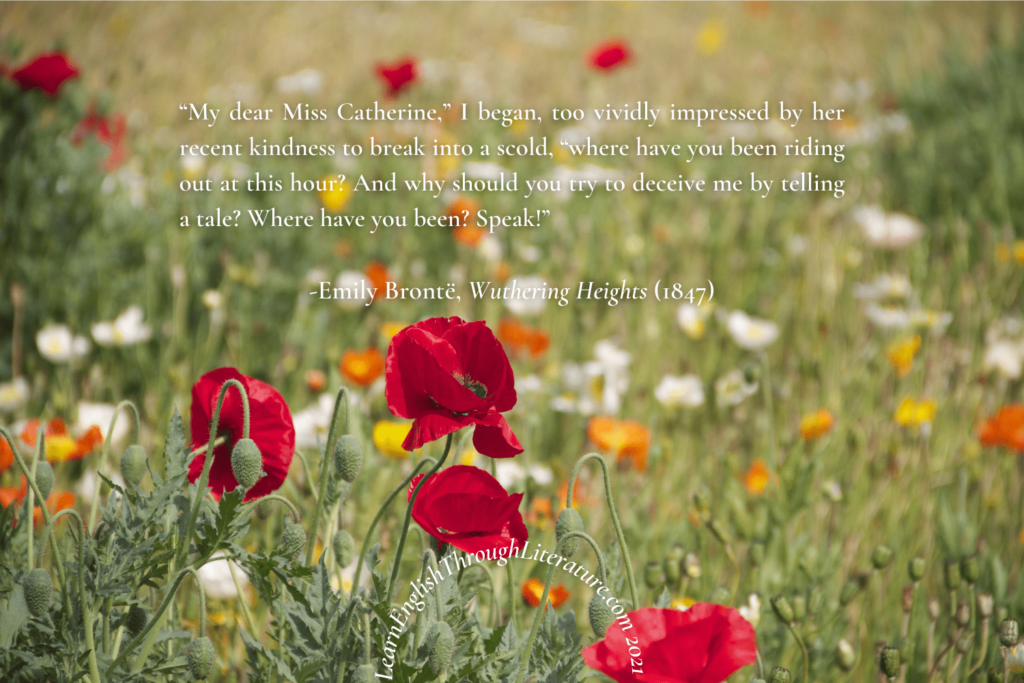Lesson #256: ‘They Were All Wild To See Lyme’ (Austen’s ‘Persuasion’): Using ‘All’, ‘Both’, ‘Either’, ‘None’ Correctly
📘 ‘The young people were all wild to see Lyme … and to Lyme they were to go – Charles, Mary, Anne, Henrietta, Louisa, and Captain Wentworth.’ – Jane Austen, Persuasion (1818) … I was re-listening to the audiobook version of one of my favourite Austen novels – Persuasion – when this sentence inspired me […]

